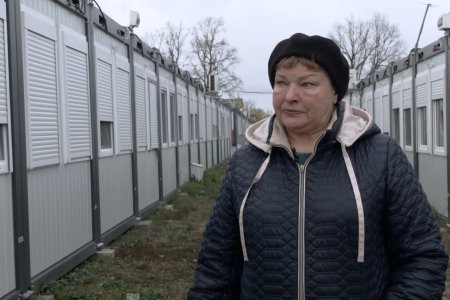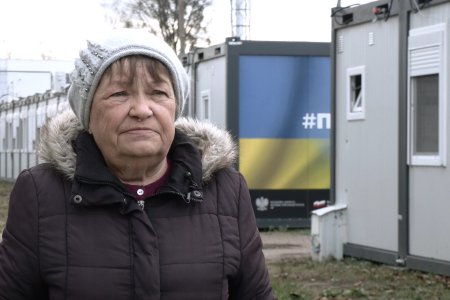My name is Oleh Sydorenko. Lieutenant Colonel of the Armed Forces of Ukraine, Command of the Ground Forces. In the past, I was an officer of the Ministry of Internal Affairs and a police colonel. And a servant of the Lord Jesus Christ.
First of all, what is a chaplain? Once, I had a conversation with a pastor who said: “What is the difference between the ministry of a chaplain and that of an evangelist? The evangelist goes around preaching and brings news of salvation to people. Isn’t that what chaplains do?” No. The work and the goal are the same. However, the direction, the vector of this work, is different because a chaplain is also an evangelist but in a specific professional environment. His task is not just to bring good news but to become an integral part of the team.

I can’t help but remember one incident. In 2015, in the 28th brigade, there was a cook with the call sign “Cosmos” who lately had been unhappy. He was an excellent cook. It was a men’s team, 28 guys platoon. And he is the cook in this platoon. He walked around upset, unable to find a place for himself. When I talked to him, it turned out that he had problems with his wife. She is tired. Previously, the man was a civilian and worked as a cook near her in a restaurant. And then he went to war. And he devotes all his time not to her, not to his two sons, but to the military team. She wanted to file for divorce. I asked for his wife’s phone number and talked to her.
I told Nataliia how hard it is for us at the front line at the zero point, how one wants to feel the closeness of family warmth, some care, and home comfort.
This feeling is created by the cook who doesn’t just boil the potatoes, puts them on the table, and opens a can of stew. For example, in the field near Stanitsa Luhanskaya, her husband made an improvised stove from a sheet of iron. He made a dough from flour and water. And he made minced meat from the stew and onions because there was no other food on the front line. This is how he prepared chebureks: fried them on an ordinary potbelly stove in the middle of the tent.
How can your mood not improve in terrible field conditions, where you wake up in a puddle because it rained at night? In such situations, of course, there is no positive mood. And here, the chef serves such dishes. They seem made from simple ingredients, but they lift your spirits.
When I told Nataliia that the progress of combat missions, and therefore peace and tranquility in our country and his family, depends on one person, her husband, she changed her attitude towards him. When we met him sometime later, he was very happy and grateful that the chaplain had managed to save his family.
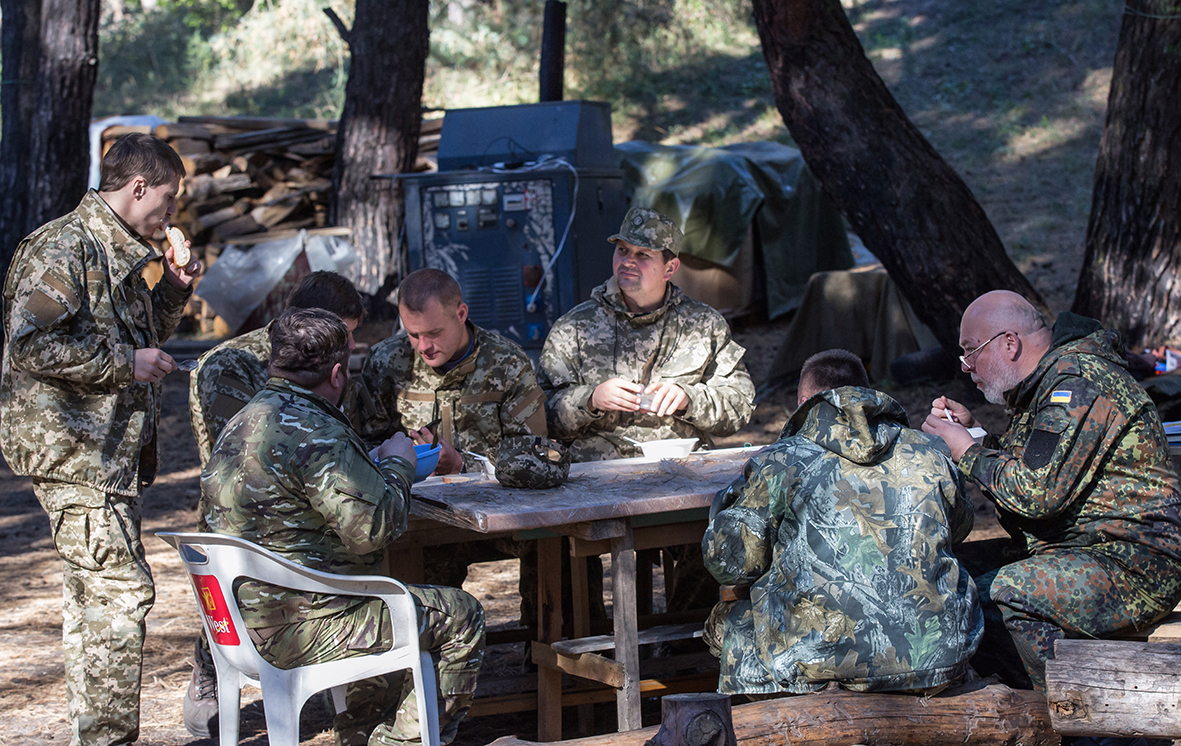
The fact is that there is a big difference between people providing psychological help for victims and those with PTSD (post-traumatic stress disorder) and a chaplain who helps a person spiritually. I can compare a psychologist to a doctor in an outpatient clinic. You feel bad, and your throat hurts, so you go to the doctor. The doctor examines and prescribes treatment. He closes the sick leave when you have already recovered and come to him. A psychologist does the same.
When a person is sick, he goes to the hospital and is seen by his doctor. From the beginning — from diagnosis, the treatment process, and complete recovery — the doctor is constantly with the patient. They conduct a medical examination every day. They walk around the wards, communicating directly with each patient. Re-assign treatment if necessary and monitor his health. Talks to him. And in the end, he discharges a healthy person.
What does a chaplain do? For example, a person has PTSD. The chaplain communicates with the people around him. He communicates with the commander. He asks the commander not to raise his voice at this serviceman because he is in the stage of PTSD.
Next comes family relationships. He calls the wife, children, and mother on the phone and asks to call this serviceman several times daily, telling him how much they love and trust him. Tell him they feel protected because he participates in this war.
The person is filled with emotions, and the chaplain communicates with him, telling biblical stories with heroes of the Old Testament and the New Testament, especially with the main character — Jesus, who was also afraid. He also had fear. He also had PTSD, which was discovered during prayer in the Garden of Gethsemane. These examples help a military man or woman get rid of this condition and become a normal team member.
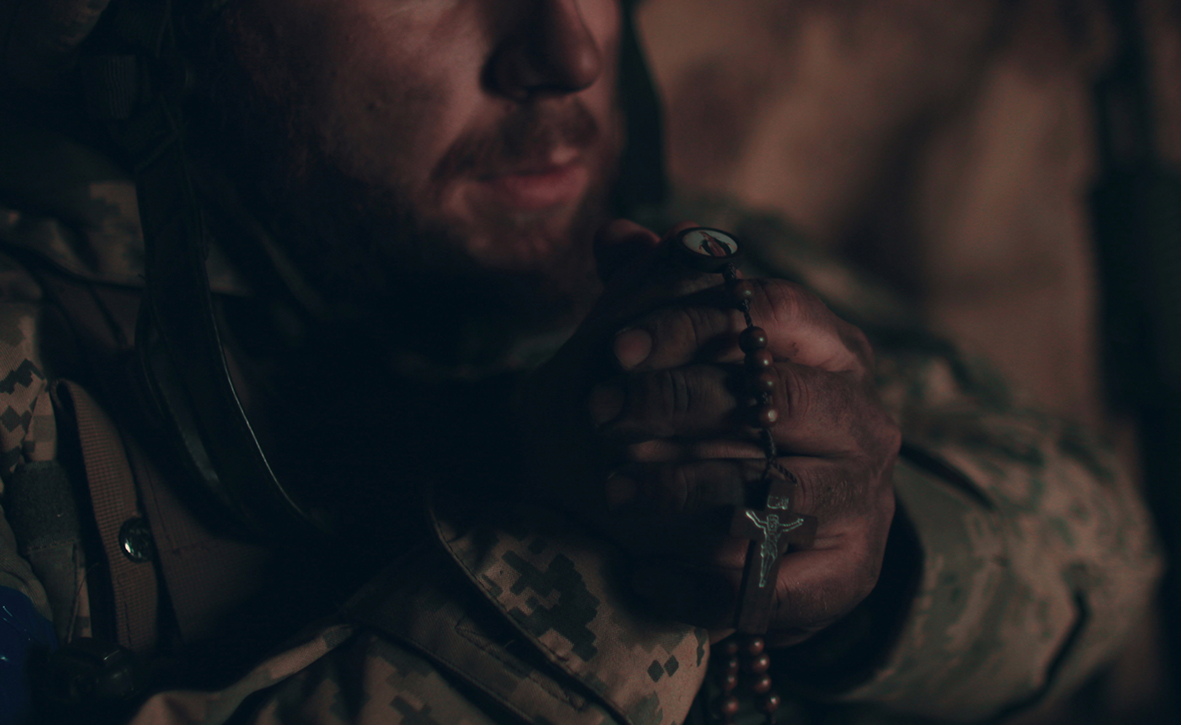
First, I am a military man, so it is a little easier to communicate with them in the military language. For 2.5 years, I was constantly in the combat units of the 28th separate mechanized brigade. So every day it was the same. When the battle began, I said passionately: “Guys, Jesus Christ is leading us into this battle! He’s already a winner! He won this victory at Calvary and is now like a winner against everything dark. He leads us to our victory! He is with each of you! It helps you aim accurately! It helps you reload your magazines quickly! He is next to you, remember that! Our only hope is in Jesus. Only with him will we win! Forward, with Jesus to victory!”
These were the words I said before the fight. And after the battle, if someone was injured, the words of encouragement were usually — Jesus will always be there. Even at night, when a doctor, for example, is taking care of others, when a nurse or someone nearby has fallen asleep, and you find yourself alone, remember that you are not alone.
Jesus sits beside your bed, saying: “I don’t have such a thing as being tired. You don’t wait for me because I need to communicate with others or go about my business. Sorry, I want to be alone now.” Jesus would never say that.
He will always say: “Give me your hand; I will take your palm in my hands. I’ll hold you tight. I will not let you go and sit next to you as long as necessary. And I will listen to you at any time, constantly. Just talk to me; I want to listen to you, and I want to hear you. I want to help you. Don’t leave me; I will never leave you because you are mine.”
The goal of chaplains is not to lead to repentance, not to lead to baptism, not to lead to church. This is God’s work. Our job is to introduce you to Jesus Christ. Tell about him, how kind, loving, unchanging he is. His love will last forever. This is our goal.
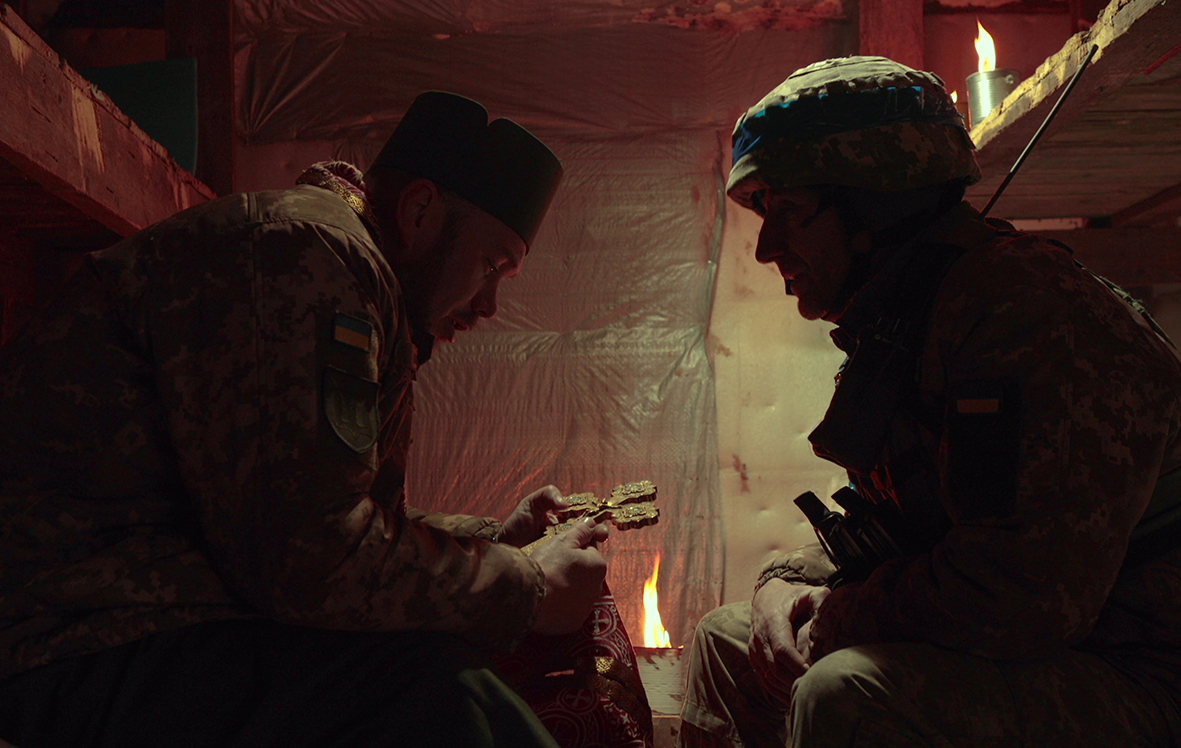
I like the experience of the United States, where people returning from the war in Afghanistan and Iraq immediately receive the compulsory vacation they need with their families: their wives and children. There must be events related to cultural programs like visits by artists, conducting concerts, and competitions. A person should not come for passive rest, lie down on the shore, have lunch dinner, and go to bed. No!
It is necessary for special groups to constantly adapt them socially, to make them understand that they are an integral and essential part of society.
Swiss watches are excellent and reliable, but take out the slightest screw, and they stop working. It is necessary to explain to every serviceman that he and his family are essential components of the society he defends, for which he gave his health and maybe even part of his body. These programs should be at the state level, not the volunteer level.
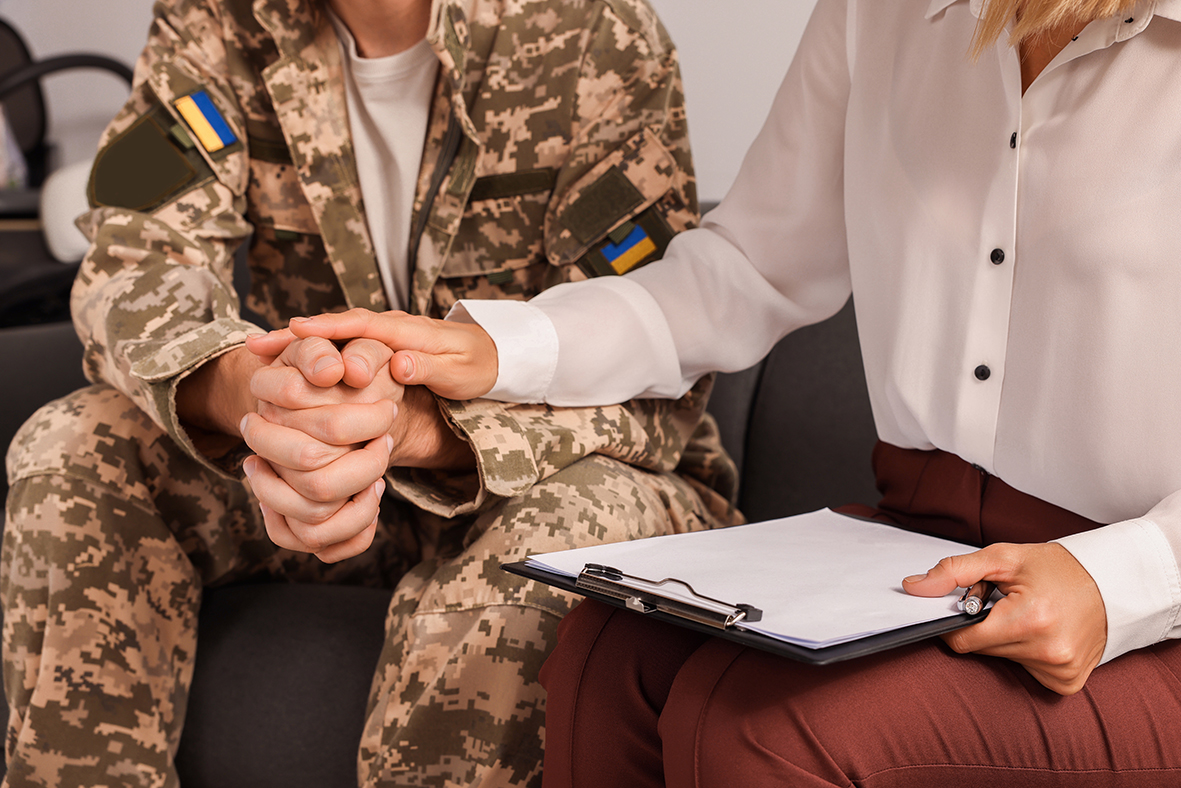
Next comes social adaptation. If a person is no longer working, there should be close relationships with employment centers based on the profession that the front-line soldier with PTSD has. You need to know where you can apply this person with the most significant effectiveness for him, not for the state, but for him.
Let’s say I returned from the war, and we need builders now, but I’m not a builder; I can’t do this. I am a journalist, poet, composer. Such a person still must be involved in the activity. If a person is left alone with this problem, they will never go to the employment center or look for a job. They will withdraw more and more into themselves every day, like a snail in its shell. And in the end, they will die there. They won’t get out of there.
When society takes care of military personnel returning from war, society will prosper because people will do everything possible to translate all their knowledge, skills, and desires into the sphere where they will be helped to find themselves.
War is a struggle. This is a struggle between darkness and light. Light always wins, but darkness will not simply lay down its weapons. Darkness uses all its means to reduce the light in this world, so there is less love and, first of all, less kindness. Less respect between people. And while this struggle continues, we must accumulate all our strength and direct all our prayers to God. But for this, you need to cleanse your hearts. God doesn’t need double-minded people. Double-minded people cannot communicate with God. First of all, everyone must purify their hearts. Turn 180 degrees away from sin. And face God. With your back to darkness, to evil and sorrow.
